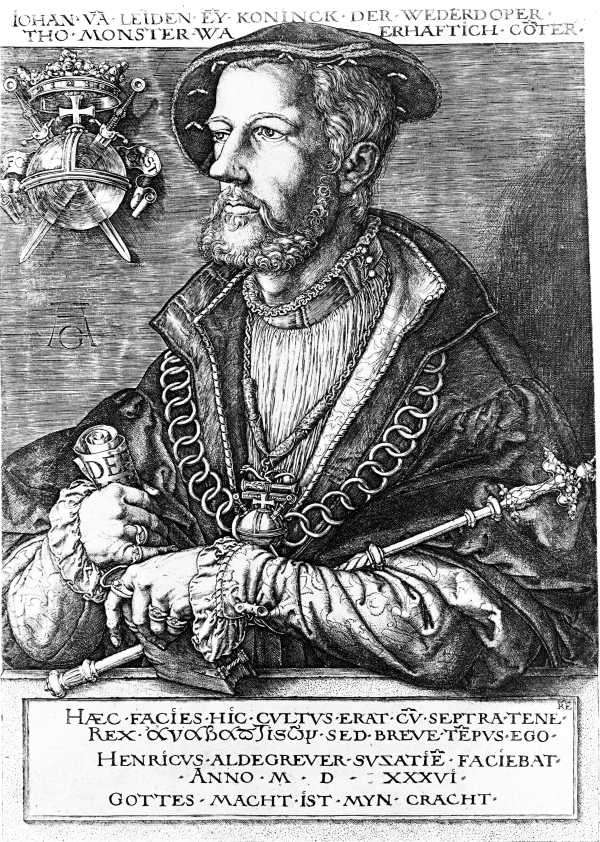
They say history is cyclical and, generally, repeats itself: over the past few years the entire world has been glued to the atrocities committed by Daesh, but it appears that a similar violent radical movement established its rule over one German city back in the 16th century.
It may seem that Daesh* has invented its own “sophisticated” means of torture and execution, yet if you look back to the 1500s it turns out that another notorious radical movement, the Anabaptists, headed by Dutchman Jan of Leiden, largely contributed to a similar reign of chaos and anarchy in the North Rhine-Westphalian city of Münster.
As Jan desperately sought to create a new kingdom, his followers flooded the city, having set their own rules: Jan, their self-proclaimed king, announced that every woman of marriageable age in Münster should find a match despite the fact that the number of women exceeded that of men in the city – which led to the official endorsement of polygamy.

Jan van Leiden
The adoption of polygamy prompted an attempted coup d’etat, which, in turn, laid grounds for another dramatic twist of events – Jan decided to render executions without trial acceptable, and it was done in the most brutal way – beheading. The self-proclaimed king did not even hesitate to take one of his sixteen wives to the town’s chopping block when she laughed at his luxurious lifestyle and to personally chop her head off making the crowd sing as the events unfolded.
As Jan and his allies proceeded with their malign activities, spreading fear and intimidation across the city, they hadn’t realized that they’d fallen short of food supplies and ammunition, becoming vulnerable to an attack. And this is exactly what happened: a disgruntled refugee Gresbeck led hundreds of soldiers, loyal to the town’s bishop Franz Van Waldeck, into Münster, killing Jan’s followers and imprisoning Jan and his highest-ranking supporters.

Jan van Leiden
Van Waldeck managed to regain control over the city, while Jan of Leiden and his two loyal followers were tortured and executed in a brutal manner – the mutilated bodies of the Anabaptists were placed in iron cages hung on the tower of Münster’s St. Lambert’s Church, where they remained for 50 years as a warning. Despite doubts among the locals, the cages are still hung up, as if to remind the people of what the town had been through hundreds of years ago.
Many scholars have drawn parallels between an “Anabaptist caliphate” and the so-called Islamic State, known as Daesh, which uses similar tactics – turning to violence and terror to achieve its goals. The terrorist group had set up special torture chambers, subjecting detainees to a wide range of punishments, being especially violent towards women, and had consistently turned to brutal mass beheadings, documenting them in videos.
*Daesh, also known as ISIL/ISIS/IS, is a terrorist group banned in Russia and many other countries.
Sourse: sputniknews.com






